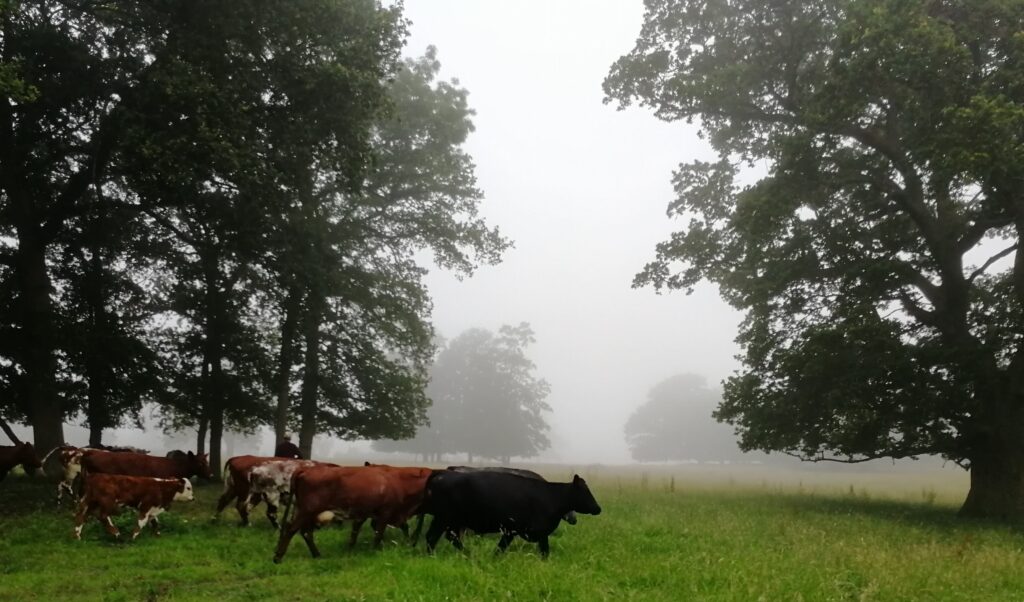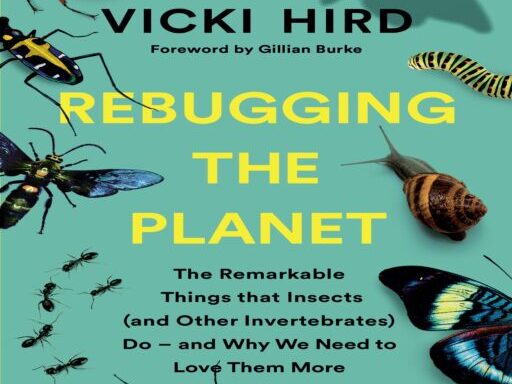I have been thinking a lot about the idea of ‘rebugging the farm’ lately. This was partly prompted by a wonderful session I did with two great bug lovers Gillian Burke of BBC SpringWatch fame (who also wrote the forward to my book) and the great dung beetle advocate Sally-Ann Spence @minbeastmayhem and @berrycroft_hub) at the Oxford Farming Conference in January 2022.
It was great fun and so interesting to hear from them both. You can watch the exchange here
Afterwards I was recalling the days I have spent on farms over the years and what I’ve learnt. It takes a fair bit for farmers to embrace the bugs after all these years of trying to remove them. I put a fair bit in the book but there is so much to say and so little space! A few thoughts I want to record here and I may expand on this…
- ‘It takes a whole village’ – To rebug the farm takes a whole food community – not only the farmer and their staff…but those that supply inputs to the farm – because these will have to change (pesticide reductions, introducing new tools, knowledge, finance!), and those that buy the produce (because what is produced may look different, less ‘perfect’, or just a different crop to suit the needs of the new system) and everyone in between.
- It takes a whole lifetime probably … mistakes will be made and farmers will sometimes have to go backwards to accommodate a less than responsive market.. If the produce buyers demand perfection its hard to leave the bugs alone and bugs are an unreliable bunch at the best of times and we have a climate crisis ahead .. and so on. Dung beetles are a great case in point but can be coaxed back with the right measures, stock, and understanding and will reward your efforts a hundred fold.
- It takes a willingness to embrace diversity and more complexity and more knowledge on the whole farm – with more rotations, different breeds of crop or livestock, and a more knowledge-input less chemical approach. Mixing livestock with crops and trees will be more suitable in many situations, moving away from the specialisation we’ve come to expect. Farmer to farmer learning will be key.
- It takes a bit of mess – more places the useful bugs can find a refuge, a nesting place, a food source… rebugging usually likes more mess.
But in return
- It gives more beauty, wildlife and natural rewards which a farmer can bank and bank for the next generation of farmer to come
- It can save costs – those biological controls may be a bit unreliable but they costs little, will self replicate each year and don’t need to be sprayed around taking machinery, fuel and time. Yields may go down but so will costs and the bottom line may not suffer. You may find more reward in the market place too if you can sell more direct or get an accreditation that means better prices or a more conscientious buyer.
- It will probably gain you more support from the taxpayer as grants will be based on providing ‘public goods’ like more wildlife and protected water courses. Markets are strong for organic produce which always holds more invertebrates because the organic farmer needs them to do the work – keeping pests at bay and building soil fertility.
Just a few thoughts on why rebugging the farm is a thing..
There are many more great experts out there too willing and able to share. I will post some contacts but for starters
Innovate Farmers
Soil Association
Organic Farmers and Growers
Organic Research Centre
Nature Friendly Farmers Network
Pesticides Action Network UK

